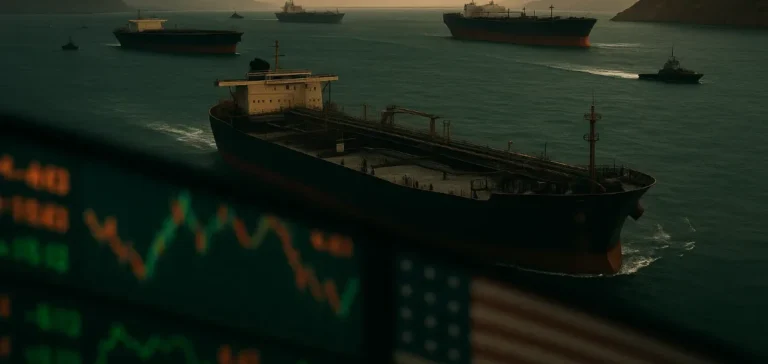The recent U.S. military operation, named “Midnight Hammer,” against Iranian nuclear infrastructure is causing significant economic concerns related to oil prices. Donald Trump, former President of the United States, directly intervened via the Truth Social platform, explicitly calling on economic actors to control the rise in oil prices. According to him, an uncontrolled price increase would directly benefit interests opposed to those of the United States, worsening global economic tensions. This declaration comes as oil markets are already showing clear signs of volatility.
Immediate Impact on Markets
Shortly after the attack, Brent crude prices peaked at around $81.40 per barrel before dropping back to around $76 in response to political statements. Despite this pullback, uncertainty remains high in the markets, notably influenced by Iran’s threat to close the Strait of Hormuz. This strategic maritime route, through which approximately 20% of global oil trade transits, represents a critical chokepoint capable of significantly affecting prices. Goldman Sachs, an influential player in international finance, estimates that any major disruption to this passage could push prices above $100 per barrel.
Trump’s Political Stance
Donald Trump explicitly called for a rapid increase in domestic oil production in the United States, directly urging the U.S. Department of Energy (DOE) to act swiftly. His very direct statement, “Drill, baby, drill!”, recalls his previous stances favoring increased energy independence, especially during his presidency. Trump’s stated goal is to immediately mitigate the economic impact of current geopolitical tensions on American consumers and global markets. This speech reflects a proactive approach aimed at quickly managing oil price instability.
International Reactions and Perspectives
Reactions to these events are mixed within the international community, with markets particularly sensitive to rapid developments in the Middle East situation. Traders and investors are closely monitoring political and military developments, anticipating various scenarios depending on upcoming decisions by the United States and Iran. The ability of the United States to swiftly increase domestic production remains one of the major stabilization strategies anticipated by economic analysts. Meanwhile, Iran maintains a firm posture regarding access to the Strait of Hormuz, reinforcing caution in global markets.






















